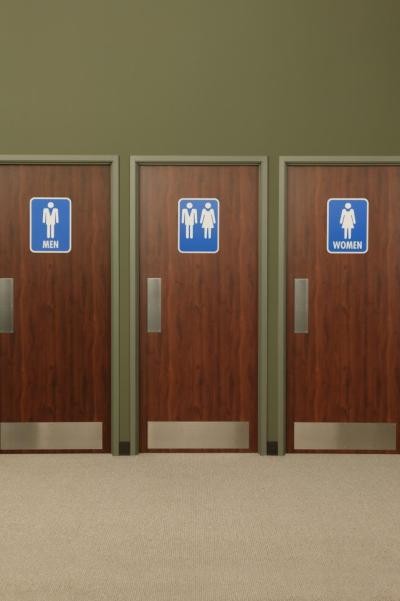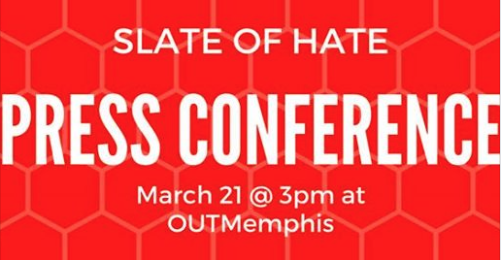
During a joint press conference, representatives from the Tennessee Equality Project and OUTMemphis dissected six bills that, if made into law, could cost the state of Tennessee billions in federal funding and have unintended consequences for all Tennesseans regardless of sexual and gender identity.
If passed, HB 892, or the “Tennessee Natural Marriage Defense Act” could cost the state of Tennessee billions in federal funding allotted to TennCare and the Department of Human Services, to the tune of $9.5 billion, according to TEP chairwoman Ginger Leonard and the bill’s own fiscal note.
“This bill comes with an enormous price tag,” said Leonard, who stressed that economic boycotts could also cost the state heavily in revenue and job losses resulting from economic boycotts.
Last year, Gov. Bill Haslam signed into law legislation that allowed counselors to refuse treatment of an LGBTQ individual if treating them violated “sincerely held religious principles”. The American Counseling Association promptly cancelled their conference scheduled to be held in Nashville, costing the state an estimated $4 million in revenue.
The Natural Marriage Defense Act is one of six bills that TEP officials say targets LGBTQ citizens. Among other bills is a revived attempt at forcing students in the state to use restroom and locker facilities that correspond with their gender that appears on their birth certificate.

Senator Mae Beavers is one of the lawmakers defying the U.S. Supreme Court’s legalization of same-sex marriage.
The fiscal impact of the so-called “Bathroom Bill” could also come in the form of economic boycotts.
Referring to the state of North Carolina, which passed a similar law last year, Leonard wondered,”How much has North Carolina already lost?”
According to Forbes, North Carolina has already lost $630 million in tourism dollars as of November last year.
Beyond economic impact, Leonard and OUTMemphis executive director Will Batts implored concerned citizens to think about the dangers posed to same-sex families.
HB1111, dubbed the “Erasure Bill” by its opponents, will require undefined words be given their “natural and ordinary meaning”. In other words, terms like “husband”, “wife”, “father”, and “mother” must correspond with their traditional biological association in legal documents.
Should HB1111 pass, Tennessee judges could potentially use the language to deny a couple’s marital status in divorce proceedings, child custody, or matters relating to inheritance or hospital visitations. TEP asserts that the full legal ramifications of the bill have gone unexplored.
“This one is sneaky, but not so sneaky that we can’t see what they’re doing,” said Batts. “They want us to disappear. We know this because that’s what this bill does. It erases us.”
This is the full line up of all six bills.
SB771/HB8888: Sponsored by Se. Mae Beavers and Rep. Mark Pody
As introduced, requires students in public school and public institutions of higher education to use restrooms and locker rooms that are assigned to persons of the same sex as that indicated on the student’s birth certificate.
SB1085/HB1111: Sponsored by Sen. John Stevens and Rep. Andrew Ellis Farmer
As introduced, requires that undefined words be given their natural and ordinary meaning, without forced or subtle construction that would limit or extend the meaning of the language, except when a contrary intention is clearly manifest. (This bill is similar to SB30/HB33, but discussed under SB1085/HB1111)
SB127/HB54: Sponsored by Sen. Mark Green and Rep. Jason Zachary
As introduced, prohibits state and local governments from taking discriminatory action against a business based on that business’ internal policies.
SB752/HB892 Sponsored by Sen. Mae Beavers and Rep. Mark Pody
As introduced, enacts the “Tennessee Natural Marriage Defense Act”, which states the policy of Tennessee to defend natural marriage between one man and one woman regardless of any court decision to the contrary.
SB1153/HB1406 Sponsored by Sen. Joey Hensley and Rep. Terri Lynn Weaver
As introduced, repeals statute that deems a child born to a married woman as a result of artificial insemination, with consent of the married woman’s husband, to be the legitimate child of the husband and wife.
 Memphis 901 FC
Memphis 901 FC 





 Courtesy of Trans Equality Rally Planning Committee
Courtesy of Trans Equality Rally Planning Committee 
 Courtesy of FedEx
Courtesy of FedEx 
 OUTMemphis
OUTMemphis  Kristofer Reynolds
Kristofer Reynolds